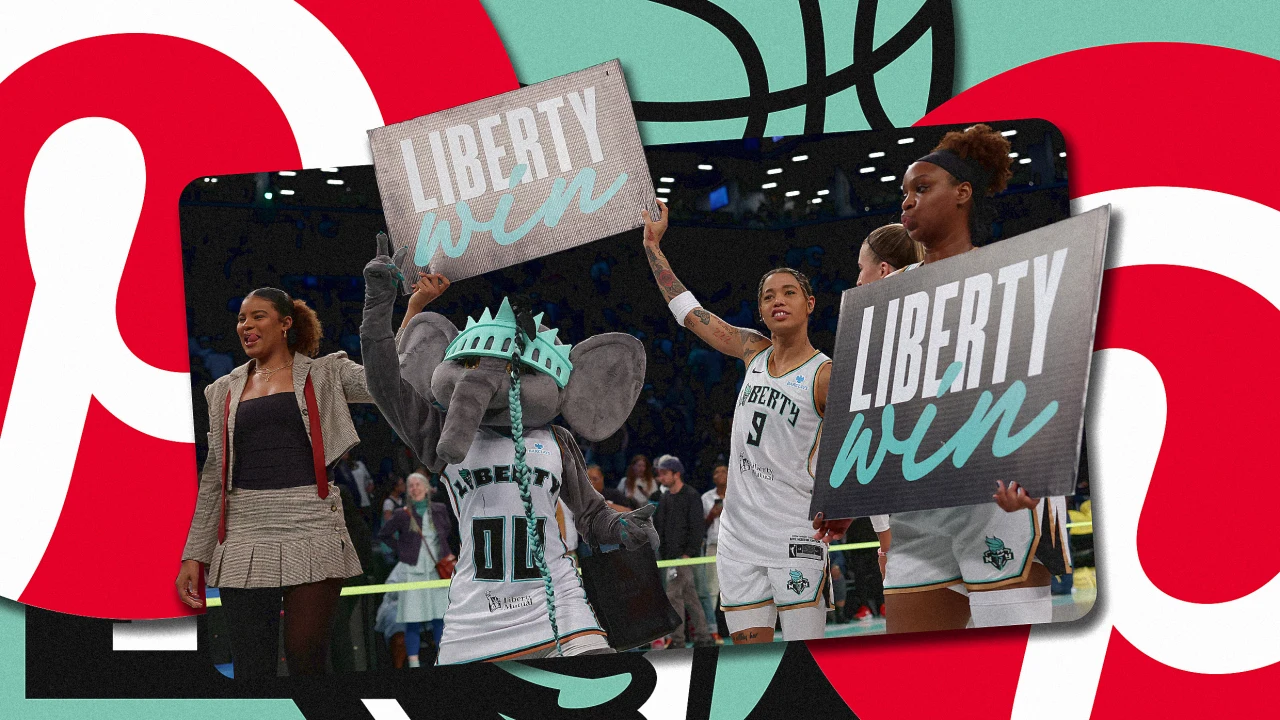spider phobia on work calls, is managing people a miserable job, and more
It’s five answers to five questions. Here we go… 1. Dealing with a spider phobia on work calls I work from home 100% of the time. I also am deeply afraid of spiders (as well as most creatures with six or more legs). I normally do not encounter creatures with six or more legs due […] The post spider phobia on work calls, is managing people a miserable job, and more appeared first on Ask a Manager.

It’s five answers to five questions. Here we go…
1. Dealing with a spider phobia on work calls
I work from home 100% of the time. I also am deeply afraid of spiders (as well as most creatures with six or more legs). I normally do not encounter creatures with six or more legs due to living in a big city, but unfortunately I still get the occasional unwanted visitor. I’ve worked very hard over the years on getting my fear reactions under control, but if I get surprised and the spider is within close range, I often can’t help but let out a short scream or yell.
Thankfully this has only happened once while on a call, and it was an informal call with one of my coworker buddies so we both just laughed it off, but what do I do if this happens while on a call with multiple people who I don’t necessarily know very well? Or even worse, what if it happens while I’m presenting or running a meeting? It usually takes me a long time to deal with a spider because I’m too afraid to kill them myself and I live alone, so I have to resort to calling in my cats and getting them to take care of it, and it’s entirely possible that I may be out of commission for several minutes or more until the threat is neutralized. I know that spiders are a very common fear, and chances are that most people in any given meeting would be sympathetic, but what exactly should I say if this happens? What is the professional version of “I’m sorry for screaming, everything is fine, but I’m being menaced by an eight-legged beast and must leave immediately until the threat is contained”?
I’m also happy to hear if you or the commenters have advice for dealing with creepy-crawlies when you are deeply afraid and live alone, but unfortunately I cannot use bug vacuums (long story, it just doesn’t work for me with the specific way my phobia manifests). Technically my current system works, it’s just inefficient. My coping skills for outdoor encounters are much more advanced.
If it happens on a call with people you don’t know well but when you’re not presenting: if you let out a yelp, it’s fine to say, “Sorry about that, there’s a huge bug here that startled me.” People will get it! If you’ll then need to take a few minutes to put the cats into action, I might skip the bug explanation altogether and instead just say, “So sorry, quick emergency I have to deal with here, I’ll be right back.” The yelp will be assumed to have been related to that (and that could be anything from a suddenly leaking ceiling to a moose peering in your window).
If you’re presenting or running a meeting: in many cases you could use the “so sorry/quick emergency/be right back” strategy from above, but you should make it pretty quick. Would your set-up allow you to move into another room when that happens and resume the call with a closed door between you and the spider?
2. Is managing people a miserable job?
I recently attended a training for managers and left feeling a little dispirited by the way other managers talked about how hard it was to be a manager and the tone they spoke about their employees with.
I’ve only been a manager for a few years. I have a very small team and I’ve been lucky enough to have interviewed and selected every person on it. Our department pays well, has a great work/life balance, and we get to operate very autonomously. Managing people has still been challenging because I’m developing a new skill set, but it’s been much more rewarding than I anticipated. I’ve watched my employees really blossom with just a little bit of trust and support and I’m so proud of the work they’ve done and how they’ve grown as professionals.
People in my training seemed really worn down and talked about their employees lying to them, refusing to do their jobs, making every piece of feedback into a grievance, spreading rumors, undermining them, not coming to work, etc. It was just really visceral how fed up they were and how much bad blood they had with some of their staff. Many of them talked similarly about their own managers.
When I accepted a management role, I was really worried I would hate it and be bad at it. My experience has been the opposite, but is it just because it’s a unicorn role? I’m concerned I’m spending my time growing as a manager only to realize managing people is miserable and I was just extraordinarily lucky.
Nah. These managers are telling on themselves more than anything else, I’d guess. Managing can be really miserable for people who don’t know how to do it well (or who just don’t want to do it, or who aren’t well-suited to it). But if there are significant problems on their team that they’re not actively and assertively addressing, they bear a lot of the responsibility for those problems themselves! (An important exception is if they’re working in environments that don’t give managers the tools and authority to do what’s needed to manage effectively … except in that situation, the solution is for them to recognize that and get out of an impossible job.)
If you’re careful about screening future management jobs to ensure you’re working in places with cultures that support managers (not “against employees” but “in doing the jobs they’re responsible for”) — and as long as you remain committed to getting the building blocks of management right (like hiring well, setting clear expectations, addressing problems, and supporting the people on your team) — you don’t need to worry you will become them.
Related:
are new managers supposed to be this stressed out?
3. Asking to be called “Doctor” in an interview
After 25 years as adjunct faculty, I finally completed my PhD last month and am now interviewing for academic positions. I’m wondering about name etiquette during interviews.
In the preliminary Zoom interviews, I’m typically asked if I prefer my full first name or a nickname. I know academic departments in my field tend to be informal. Everyone in these Zoom meetings is presumably a “Dr.” but they invite me to use their first names. Still, I’m proud of all I did in my journey to “Doctor.” Plus, I recently changed my last name for really personal reasons, and it brings me genuine joy to hear “Doctor Goodname.”
If I rolled it out with a little humility and humor, would it be off-putting to say this? “Feel free to call me Firstname, especially if we end up working together, but for today’s interview, I’d love to be called Doctor Goodname”?
Don’t do it!
If they’re introducing themselves by their first names and no honorifics, you should not ask to be called by a honorific yourself. It would be distancing and risks seeming inappropriately self-important (there’s nothing wrong with being proud of the title you’ve earned, but it’s not appropriate to use a title in every context — there are some schools, and many workplaces, that don’t use them at all) and making them worry about a culture mismatch. It’s not a good idea to do an interview.
Congratulations on the PhD!
4. Correcting HR when they misgender me
I work at a place that prides itself on inclusion, acceptance, etc. It’s in our mission statement and everything.
I go by my middle name professionally, or really, a shortened version of it. It reads as a traditionally masculine name. I’m non-binary and use they/them pronouns (they’re in my messaging app, on my badge, and they used to be in my email signature but I removed them — long story, etc.). Most people in leadership are good about using them. I have neither the time nor energy to correct people who don’t directly manage me — I’d spend all my time correcting them rather than working and would probably run into resistance and people not caring. I’m fine also being called she/her. It’s not my favorite, but I look and sound like a she/her, so I get it.
Today, a member of HR (who I’ve never spoken to) referred to me as Mr. and he/him in an email to a candidate we were contacting. The issue is that I’d called the candidate on the phone earlier and I don’t sound anything like a mister. At all. I’m afraid to confuse the candidate (“in the email HR said Mr. Lastname was reaching out to me, but that sounded like a Ms. Lastname”) but more importantly, I’m afraid of correcting the HR person due to the power imbalance. I don’t want to email and say, “Hey, just a heads-up, I don’t use gendered honorifics — just Firstname is fine!” because it feels like I’m being a pain or whining about something that, in the grand scheme of things, is really small and silly. I get that there are some non-binary people who have no pronoun preference, but it rubbed me the wrong way. I feel like I should say something because even if it doesn’t bother me (a lot), it might bother someone else, but I’m not sure how to do that.
How about, “Quick correction, I’m not a Mr.!” If you want, you could add, “I use they/them, and just Firstname is fine” — but you could even skip that and just address the Mr. part, which is the part you’re concerned is confusing the candidate.
You aren’t being a pain or whining. You’re correcting something that was wrong, and assuming that of course the HR person wants to get it right next time. (Hopefully they do!)
5. Do my resume and online application need to match perfectly?
I recently finished grad school and have officially re-entered the job market. I’ve been filling out a lot of online job applications, and many of them have required me to upload my resume but then also fill out a form with my work history. (Mildly annoying, but I know it’s pretty common.)
I’m currently in the middle of filling out an application that’s asking for my work history from the past seven years, but my resume includes a job that I left eight years ago. Will it look weird if I have a job listed on my resume but not on the online application? Should I take it off my resume entirely? Or include it on both and assume that the “past seven years” thing is more of a guideline than a hard cutoff?
And in general, does it matter if my resume and the online form don’t match perfectly? I wouldn’t change anything substantial — I mean things like adding an extra bullet point that I left off of the corresponding resume entry to save space.
Nope, that’s fine. Your resume and the online form don’t need to match perfectly as long as they don’t contradict each other, since they serve different purposes. (The resume is to present your candidacy in the way you think is strongest, while the application’s purpose is partly to ensure you present specific categories of info they definitely want included and to ensure you attest that it’s accurate.) In other words, having a job on the form that you didn’t include on your resume is fine, but having different dates listed a job in one place than in the other would be a problem.
The post spider phobia on work calls, is managing people a miserable job, and more appeared first on Ask a Manager.























































































































































